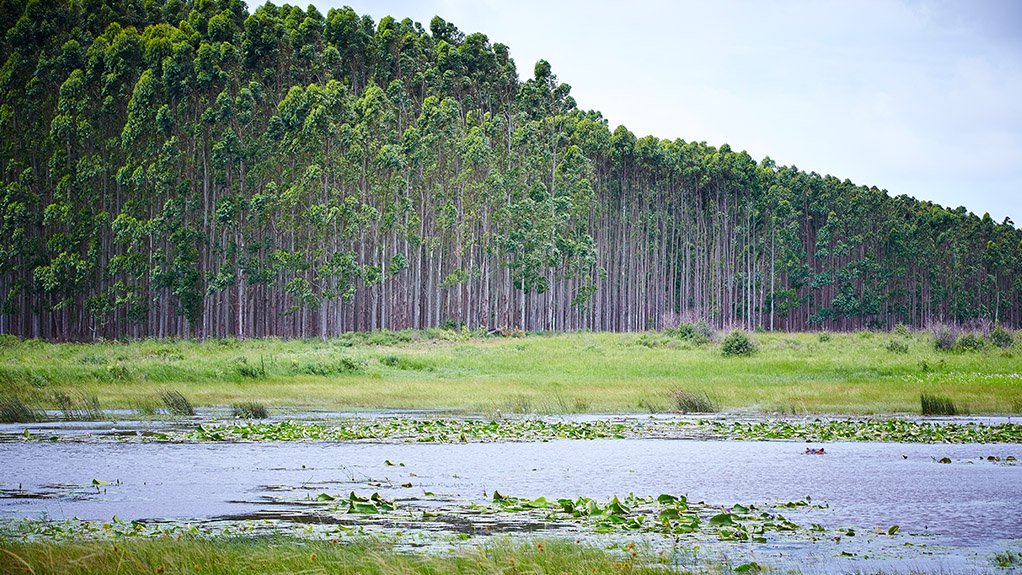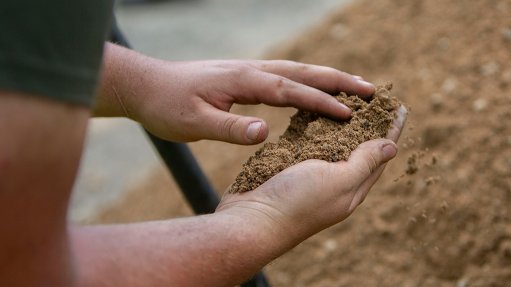Sequestration crucial for local forestry, paper industries


FIBRE-BASED SOLUTIONS A key mitigation measure in local industry is to replace fossil fuels used at the mills with biofuels such as tree biomass residues from plantations
Industry body Paper Manufacturers Association of South Africa (Pamsa) executive director Jane Molony highlights that in the National Treasury’s Budget Review in February, sequestration was recognised to include carbon sequestered in the forest, and carbon stored in harvested wood products, such as paper, owing to it playing a vital role in mitigating climate change.
The South African Carbon Tax Act, implemented in June 2019, includes sequestration credits in the methodology for calculating emissions for which the tax must be paid.
Sequestration refers to increases in the amounts of carbon stored in forests, forest products and landfills.
“There is a significant body of scientific evidence that shows that sustainable forest management and storage of carbon in harvested wood products can optimise the sequestration of carbon for a longer period and mitigate emissions. This is in line with the recognition of nature-based mitigation options highlighted in the Paris Accord, and reiterated at COP26 last year,” Molony explains.
She adds that South Africa’s Nationally Determined Contribution climate action plan also recognises the role that sequestration can play in meeting the country’s low-carbon emissions trajectory.
This provides opportunities for the local forestry and pulp and papermaking industries to meet the increasing demand for fibre-based products that can replace fossil fuel products.
Further, recycling paper products also retains stored carbon for longer and reduces methane emissions from landfill sites that would have been generated if these products were landfilled.
Molony adds that a key mitigation measure in the local pulp and papermaking industry is to replace fossil fuels used at the mills with biofuels such as tree biomass residues from the plantations.
However, currently this requires either a waste licence or an application for exclusion from the definition of waste to allow for this fuel substitution, she stresses.
“Pamsa has been engaging with the Department of Forestry, Fisheries and the Environment (DFFE) on this issue. The association hopes that the role of biofuels will be recognised as a mitigation measure, and that the appropriate enabling regulatory framework will be implemented to facilitate a greater use of wood biomass as a fuel.”
For certain products and use, Pamsa has been granted an exclusion for specific waste streams from the definition of waste to promote beneficiation opportunities of the likes of paper sludge and ash in various products such as brick and block manufacturing, soil conditioners, biofuels and cement production.
Molony adds that, while many companies implement their own research programmes, Pamsa also has a bursary programme that is aimed at chemical engineering final-year students or graduates with potential to do their master’s degrees in chemical engineering.
After graduating, the students may be invited to join one of Pamsa’s member companies as engineers in training.
This year’s applications will open in April with the news that the two-year bursary has been increased from R260 000 to R320 000 for qualifying students.
“Through partnerships with universities, and the Department of Science and Innovation, a number of local projects are exploring renewable alternatives to fossil-based materials in products such as plastic, membranes and films made from cellulose, as well as dust suppressants from lignin.”
Molony states that through extended producer responsibility, work continues to promote and facilitate the circular economy, and the reduction of fibre-based products being disposed as waste.
“The association will continue to engage with government to optimise the role of fibre-based solutions in a low-carbon economy. This includes the recognition of all timber that is produced sustainably and sourced for the production of harvested wood products, increasing biofuel consumption, and to promote the diversion of fibre-based products from landfill and their beneficial use,” she concludes.
Article Enquiry
Email Article
Save Article
Feedback
To advertise email advertising@creamermedia.co.za or click here
Press Office
Announcements
What's On
Subscribe to improve your user experience...
Option 1 (equivalent of R125 a month):
Receive a weekly copy of Creamer Media's Engineering News & Mining Weekly magazine
(print copy for those in South Africa and e-magazine for those outside of South Africa)
Receive daily email newsletters
Access to full search results
Access archive of magazine back copies
Access to Projects in Progress
Access to ONE Research Report of your choice in PDF format
Option 2 (equivalent of R375 a month):
All benefits from Option 1
PLUS
Access to Creamer Media's Research Channel Africa for ALL Research Reports, in PDF format, on various industrial and mining sectors
including Electricity; Water; Energy Transition; Hydrogen; Roads, Rail and Ports; Coal; Gold; Platinum; Battery Metals; etc.
Already a subscriber?
Forgotten your password?
Receive weekly copy of Creamer Media's Engineering News & Mining Weekly magazine (print copy for those in South Africa and e-magazine for those outside of South Africa)
➕
Recieve daily email newsletters
➕
Access to full search results
➕
Access archive of magazine back copies
➕
Access to Projects in Progress
➕
Access to ONE Research Report of your choice in PDF format
RESEARCH CHANNEL AFRICA
R4500 (equivalent of R375 a month)
SUBSCRIBEAll benefits from Option 1
➕
Access to Creamer Media's Research Channel Africa for ALL Research Reports on various industrial and mining sectors, in PDF format, including on:
Electricity
➕
Water
➕
Energy Transition
➕
Hydrogen
➕
Roads, Rail and Ports
➕
Coal
➕
Gold
➕
Platinum
➕
Battery Metals
➕
etc.
Receive all benefits from Option 1 or Option 2 delivered to numerous people at your company
➕
Multiple User names and Passwords for simultaneous log-ins
➕
Intranet integration access to all in your organisation



















